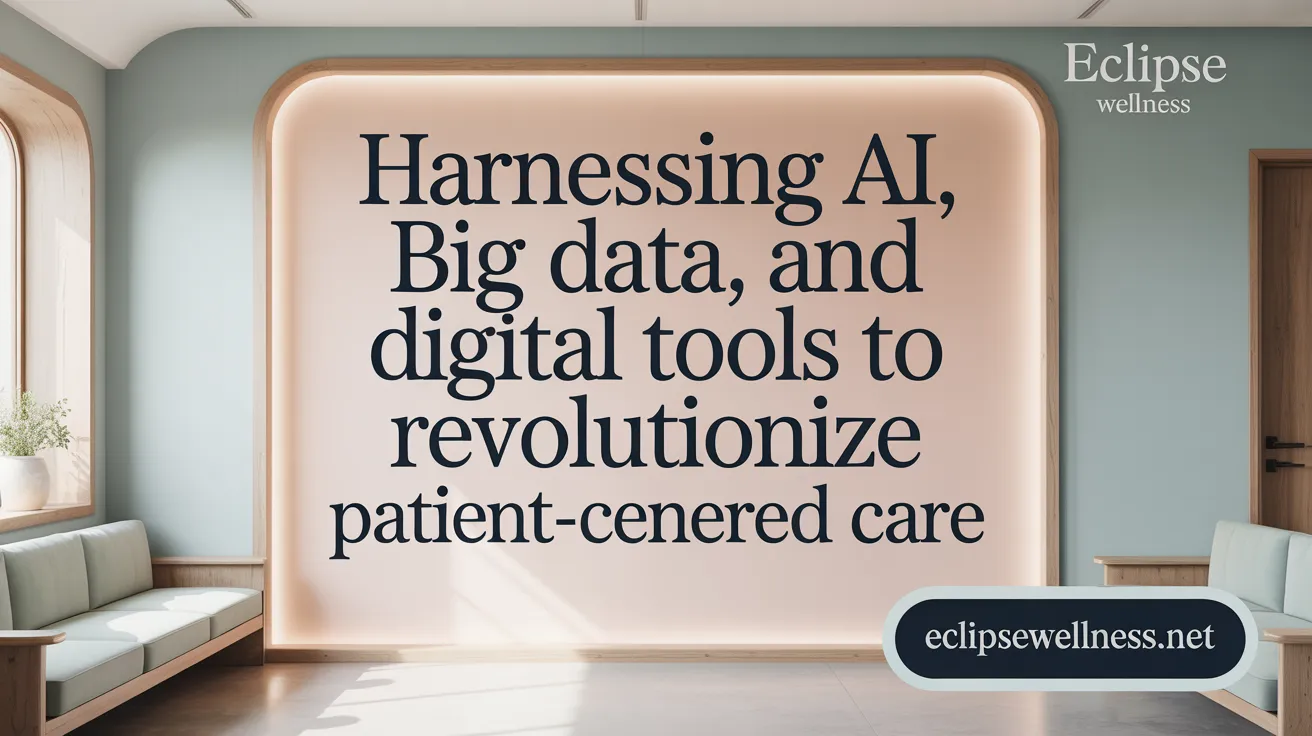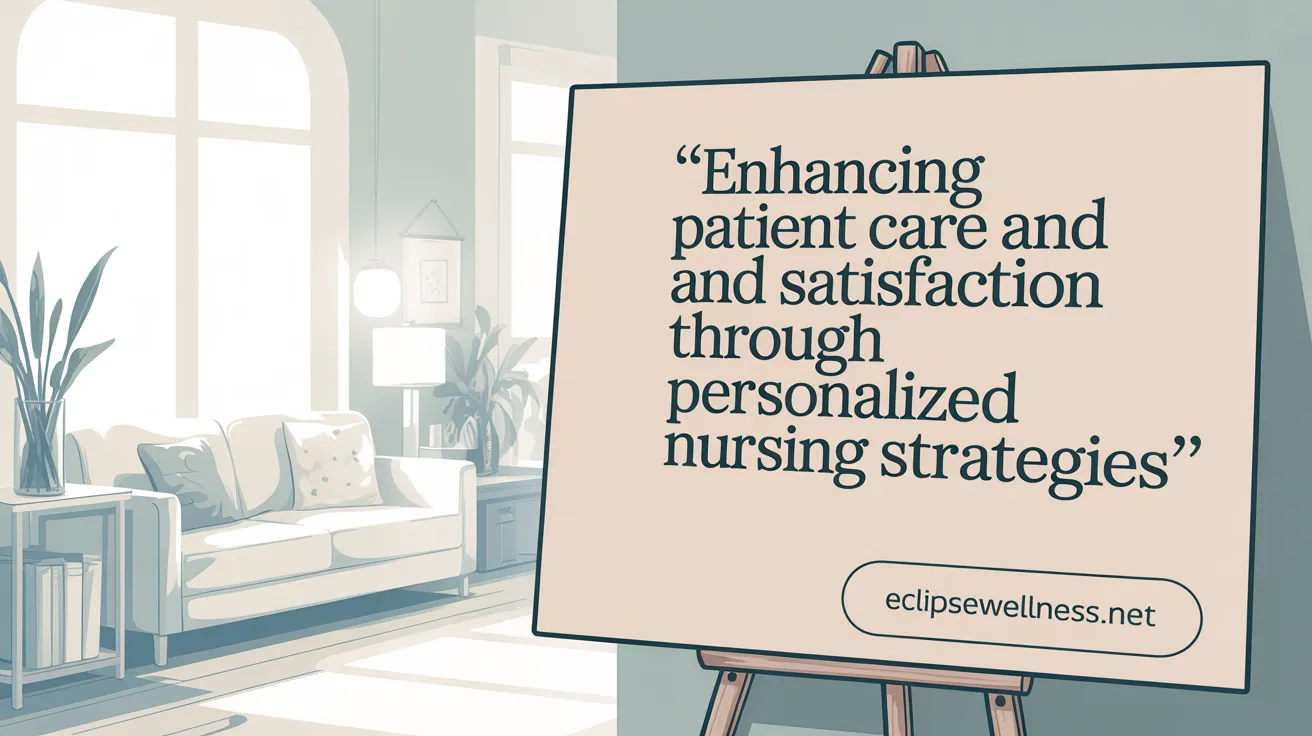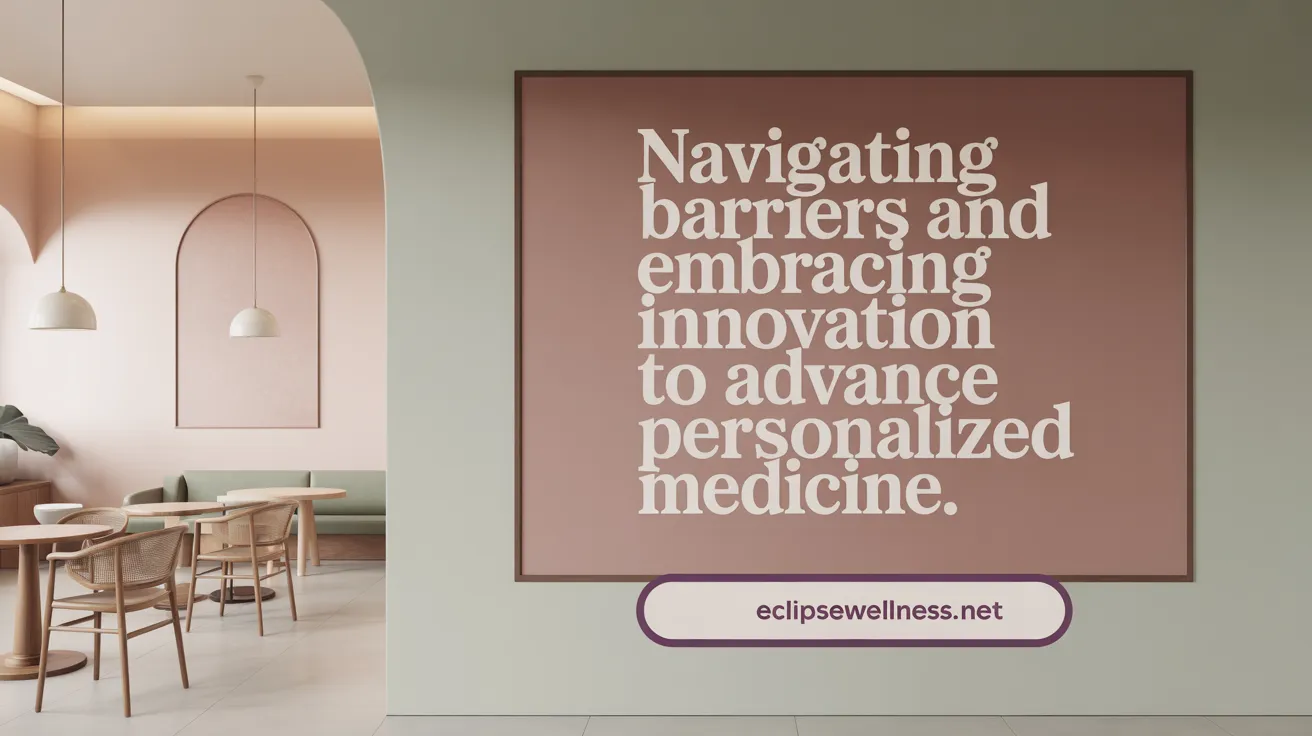Personalized Healthcare: A New Era in Patient Care
Personalized healthcare is revolutionizing the medical field by tailoring treatment and prevention strategies to the unique characteristics of each individual. By integrating genetic profiles, lifestyle factors, environmental conditions, and advanced technology, personalized approaches improve patient engagement, enhance treatment efficacy, and lead to better outcomes. This narrative explores how personalized healthcare achieves these transformative benefits across various medical domains, emphasizing its role in prevention, diagnosis, treatment, and patient safety.
Foundations and Principles of Personalized Healthcare

What is personalized healthcare and how does it differ from traditional care?
Personalized healthcare is an approach that tailors medical decisions, treatments, and preventive strategies based on unique individual characteristics such as genetics, environment, and lifestyle. Unlike traditional healthcare models that apply uniform treatments to broad patient groups, personalized healthcare focuses on proactive, patient-centered care. This shift empowers patients to actively engage in managing their health by collaborating with providers, co-designing care plans, and utilizing comprehensive health risk assessments.
How do genetics and environment influence personalized healthcare?
Genetics play a significant role in determining disease susceptibility, responses to medication, and potential adverse drug reactions. Variations in genes can guide clinicians in selecting targeted therapies, dosing medications precisely, and predicting treatment outcomes. Environmental and lifestyle factors—including diet, stress, social determinants of health in personalized care, and exposures—also critically shape health trajectories. By integrating genetic information with these external factors, personalized healthcare creates highly customized prevention and treatment plans that optimize efficacy and minimize risks.
Shifting from reactive to proactive, patient-centered care
Traditional healthcare often responds to established symptoms or diseases. Personalized healthcare proactively identifies risks early through tools like genetic testing, biomarker analysis, and continuous health monitoring. This model encourages early intervention and disease prevention, reducing hospitalizations and improving long-term outcomes. The patient becomes a partner in care decisions, fostering a wellness-focused rather than illness-focused mindset.
Enhancing patient engagement and shared decision-making
Personalized care actively involves patients through transparent communication and education about their health data, risks, and treatment options. Shared decision-making enhances trust, adherence, and satisfaction. Technologies such as electronic health records and health coaching platforms support individualized goal setting, behavior changes, and self-management.
Technological enablers of personalized healthcare
Advancements in artificial intelligence (AI), machine learning, and digital health tools significantly accelerate personalized healthcare. AI-driven data analysis in healthcare analyzes complex genomic, clinical, and lifestyle data to provide clinicians with actionable insights for tailoring treatments. Wearable devices and remote monitoring collect real-time patient data, enabling continuous risk assessment and timely care adjustments. Digital platforms improve data integration and facilitate personalized communication.
Through combining genomics, environment, technology, and patient collaboration, personalized healthcare redefines medicine to be precise, predictive, preventive, participatory, and patient-centric.
Genomics and Precision Medicine: Targeting Treatments for Better Outcomes

How does genetic profiling improve treatment precision and patient outcomes?
Genetic profiling plays a crucial role in precision medicine in healthcare by identifying unique mutations and biomarkers in individual patients. This information directs healthcare providers to select targeted therapies based on genetic profiles tailored to the patient’s genetic makeup, thereby enhancing treatment effectiveness. It also helps optimize medication dosing to minimize adverse drug reactions, making treatments safer and more efficient.
In cancer care, for example, patients who receive biomarker-guided cancer therapy experience significantly better outcomes. Studies show these patients have higher response rates and longer progression-free survival compared to those on traditional therapies. Genetic profiling enables early disease detection and risk assessment, allowing preventative interventions and tailored treatment plans.
What are key successes of personalized medicine in oncology?
Personalized medicine has revolutionized oncology by using genetic testing in cancer care to understand tumor-specific mutations. This enables the use of targeted drugs and immunotherapies that directly attack cancer cells based on their unique genetic features. Notable improvements include reduced side effects and increased survival rates.
Success stories span several cancer types such as breast cancer with HER2-directed therapies, lung cancer guided by mutation analysis, and hematologic malignancies treated with targeted agents. These advances have contributed to a notable decline in cancer mortality and improved quality of life for many patients.
Pharmacogenomics and medication optimization
Pharmacogenomics studies genetic variations affecting drug metabolism and response. Integrating this knowledge into clinical practice allows for precise medication selection and dosing, reducing trial-and-error prescriptions and enhancing safety. This approach is especially impactful in complex diseases like cancer, cardiology, and mental health as highlighted in research on pharmacogenomics in personalized medicine and its application in different therapeutic areas.
Early disease detection and risk assessment
Genomics facilitates the development of personalized screening protocols using molecular biomarkers. Early detection strategies based on genetic risk factors and biomarker monitoring help identify diseases at treatable stages, significantly boosting intervention success rates, as supported by personalized early detection strategies.
Challenges and advancements in precision medicine
While the benefits are clear, challenges remain including scientific gaps in understanding disease mechanisms, high technology costs, data privacy concerns, and regulatory complexities. However, ongoing innovations such as liquid biopsies, gene editing techniques like CRISPR, and AI-driven data analysis in healthcare are advancing the field, making precision medicine more accessible and effective.
| Aspect | Description | Impact |
|---|---|---|
| Genetic Profiling | Identification of mutations and biomarkers | Enables targeted therapy choice |
| Pharmacogenomics | Genetic influence on drug metabolism | Optimizes medication dosing and safety |
| Oncology Success | Tumor-specific targeted treatments | Improved survival and quality of life |
| Early Detection | Molecular biomarkers and risk-based screening | Early intervention and better outcomes |
| Challenges & Advances | Costs, privacy, technology innovations | Progress toward wider adoption and impact |
Technology and Big Data: Enhancing Personalized Healthcare Delivery

How do AI and big data contribute to personalized healthcare?
AI and big data play pivotal roles in modern personalized healthcare by integrating diverse information sources, including genomic data, electronic health records (EHRs), social determinants of health in personalized care, and wearable device metrics. This integration enables more accurate and early diagnosis by analyzing complex patterns that may elude traditional assessments. Advanced machine learning algorithms support risk prediction and tailor therapies to individual molecular and lifestyle profiles, optimizing clinical decision-making.
Digital health technologies empower continuous patient monitoring, facilitating timely adjustments in treatment and fostering proactive interventions. This dynamic approach reduces adverse events, enhances patient safety, and improves overall outcomes.
What technological solutions facilitate personalized care planning and management?
Tools such as ChartSpan’s RapidAWV™ exemplify software solutions that automate health risk assessments and personalize wellness planning during Annual Wellness Visits. By streamlining data collection and enabling customized care pathways, these platforms enhance clinical workflow efficiency and patient engagement.
Complementing software solutions, telemedicine, wearable health technology, and virtual health assistants extend personalized care beyond clinical settings. They enable remote monitoring, personalized education, and tailored patient support, all of which facilitate adherence to care plans and early identification of health changes requiring intervention.
Integration of big data including EHRs, wearables, and genomics
The convergence of big data from EHRs, wearable health monitors, and genomic sequencing provides a rich multidimensional view of patient health. This integration supports predictive analytics that enhance early disease detection, precision in treatment selection, and ongoing health status monitoring. Leveraging genomic profiling in personalized medicine is key in optimizing healthcare delivery.
Improving diagnosis, early detection, and monitoring
Advanced analytics on integrated datasets allow for near real-time disease surveillance and personalized interventions. Techniques such as liquid biopsies inform early cancer detection, while AI-driven algorithms assess risk trajectories for chronic diseases, enabling preemptive care (Early Disease Detection, AI for Risk Stratification).
Challenges like data privacy, integration, and accessibility
Despite technological advances, personalized healthcare faces challenges including ensuring patient data privacy, overcoming interoperability barriers among disparate data sources, and addressing unequal access to advanced technology. Continued efforts in securing data and expanding training and infrastructure are essential to broaden equitable adoption (Barriers to Personalised Medicine Adoption, Cost and accessibility challenges).
Personalized Nursing and Care Coordination: The Human Element in Precision Health

How does personalized nursing improve patient outcomes?
Personalized nursing care is designed to meet the unique psychological, social, cultural, and biological needs of each patient. By tailoring interventions such as individualized healthcare plans, health guidance education, and dedicated nursing teams, personalized nursing enhances care quality and heightens patient satisfaction. This approach has been linked to better symptom control, reduced hospital readmissions, and improved emotional well-being, showing a direct positive impact on clinical outcomes and patient engagement.
What role does care coordination and chronic disease management play in personalized healthcare?
Care coordination and chronic disease management programs play a vital role in personalized healthcare by providing ongoing communication and support outside traditional appointment settings. They offer lifestyle counseling, address social determinants of health in personalized care, like transportation or access to care, and provide emotional support. Such programs foster personalized outreach and education, which have been shown to reduce avoidable hospital readmissions and empower patients to take an active role in their self-care and management of chronic conditions.
Multidisciplinary collaboration and patient education
Effective personalized nursing involves collaboration among healthcare professionals, including clinical geneticists, genetic counselors, and primary care providers. This teamwork ensures comprehensive care, particularly when integrating complex data such as genomic profiles. Patient education is also critical, equipping patients with knowledge about their conditions and care plans, which further supports engagement and adherence.
Impact on reducing readmissions and improving emotional well-being
Personalized nursing contributes significantly to lowering unplanned and avoidable hospital readmissions through tailored interventions and care coordination. Emotional support components, such as mitigating anxiety and depression around health conditions, enhance patients' mental and emotional states, leading to higher satisfaction and trust in healthcare services. These benefits align with personalized outreach and patient engagement strategies.
Incorporating genomic data in nursing care
Integrating genomic information into nursing care enables a deeper understanding of patients’ biological profiles and disease susceptibilities. Although challenges exist due to limited resources and provider training, personalized nursing that embraces genomic knowledge supports precision medicine in nursing principles and facilitates more targeted, effective interventions for individual patients.
Patient Engagement and Experience in Personalized Healthcare
How does personalized healthcare improve patient engagement and satisfaction?
Personalized healthcare boosts patient engagement by tailoring communication and educational content to individual needs. Healthcare organizations use patient data to provide relevant information that resonates with each person’s unique health situation. This approach builds trust and loyalty, making patients feel valued and understood. With personalized follow-up, patients receive timely reminders and support, encouraging them to adhere to treatment plans and actively participate in care decisions. As a result, patients experience better health outcomes and greater satisfaction.
What technologies facilitate improved patient experience in personalized care?
Technologies play a vital role in enhancing patient experience through personalization. Personalized Healthcare Technology enable healthcare providers to deliver customized messages and educational materials based on clinical data and patient preferences. Mobile apps are tailored to user behaviors and locations, providing convenient access to health information and reminders. Virtual health assistants offer real-time support, answering questions and guiding patients through their care journey. Additionally, risk-based educational outreach programs target patients with specific health needs, empowering them to make informed decisions. Together, these technologies foster greater patient empowerment, improving adherence and engagement.
Use of tailored communication and educational content
Effective patient engagement involves sending targeted educational materials that reflect patients' health conditions and treatment plans. For example, patients may receive personalized resources about managing chronic conditions or preparing for procedures. Such tailored content enhances understanding and supports shared decision-making between patients and providers.
Role of personal health plans and shared decision-making
Personalized health care framework often include the development of individual health plans created collaboratively by patients and clinicians. This partnership supports shared goal-setting and coordinated follow-up, promoting a sense of ownership in health management and improving adherence.
Impact on adherence, mental health, and trust in providers
When patients perceive care as personalized, they are more likely to trust their providers and feel motivated to follow recommendations. This trust positively influences mental health and reduces feelings of anxiety or helplessness, further supporting treatment success. For insights on this impact, see Personalized nursing care and psychological support.
Improving Patient Safety and Reducing Costs through Personalized Care
How does personalized healthcare enhance patient safety?
Personalized healthcare improves patient safety primarily by leveraging genetic profiling in personalized healthcare and molecular profiling. This approach allows healthcare providers to anticipate how a patient will respond to certain medications, which substantially reduces the risk of adverse drug reactions and avoids the trial-and-error method often seen in traditional prescribing.
Beyond medication safety, early disease detection enabled by personalized care leads to timely, targeted interventions. Such early action decreases the need for invasive procedures and lowers hospitalization rates, all of which contribute to enhanced patient safety.
In what ways does personalization reduce healthcare costs?
Personalized care reduces costs by preventing unnecessary medical tests and ineffective treatments through precise risk assessments. Moreover, personalized follow-up care effectively decreases hospital readmissions, which are often costly and avoidable.
This tailored management extends especially to chronic diseases, where personalized approaches support ongoing care and preventive strategies, resulting in fewer acute exacerbations and emergency interventions. Collectively, these efficiencies translate into significant healthcare cost savings without sacrificing care quality.
Additional Benefits of Personalized Care
- Efficient Resource Utilization: By focusing treatments and diagnostics on the patient's unique profile, healthcare resources are deployed more effectively, minimizing waste. See Big data applications in personalized healthcare.
- Psychosocial Advantages: Patients receiving personalized care often report feeling more valued and understood. This positive engagement improves mental well-being and supports better treatment adherence. For further discussion, refer to Personalized nursing care.
The integration of technologies such as artificial intelligence and comprehensive health data further empowers personalized healthcare to optimize safety, outcomes, and financial sustainability within medical systems.
Challenges and Future Directions in Personalized Healthcare

What challenges hinder widespread adoption of personalized healthcare?
Personalized healthcare faces several significant barriers to broad implementation. The high costs associated with advanced genomic and diagnostic technologies often limit access, especially in resource-constrained settings. Additionally, data privacy concerns arise due to the sensitive nature of genetic information, requiring strict protections to maintain patient confidentiality. Healthcare providers frequently lack adequate training to interpret complex genomic data, making integration into clinical practice challenging. Furthermore, most genetic research has predominantly focused on populations of European descent, resulting in limited genetic diversity and equity in personalized medicine benefits. Regulatory variations across regions and inconsistent infrastructure also contribute to uneven adoption and raise practical difficulties in standardizing care.
What does the future hold for personalized healthcare?
The future of personalized healthcare is promising with ongoing technological and methodological advances. Genomic sequencing costs continue to decline, facilitating wider patient access. Artificial intelligence and machine learning in healthcare are increasingly applied to analyze diverse data types, supporting precision in diagnosis and treatment. Innovations in adaptive clinical trial designs and digital therapeutics provide flexible and patient-specific treatment validation and delivery. A holistic approach integrating genetics, lifestyle, environment, and social determinants of health in personalized care is expected to foster heightened patient engagement and self-management. This proactive and participatory health system aims to shift from reactive care to prevention, optimizing outcomes, reducing costs, and enhancing overall well-being globally.
Embracing a Personalized Future for Better Health Outcomes
Personalized healthcare represents a transformative shift in medicine, moving beyond generic treatment paradigms toward individualized, patient-centered approaches. By integrating genetic insights, advanced technologies, and holistic care models, this paradigm improves diagnostic accuracy, treatment precision, patient safety, and overall satisfaction. Despite notable challenges, ongoing innovations and collaborative efforts promise to expand access and efficacy. Ultimately, personalized healthcare not only enhances patient outcomes but also fosters stronger patient-provider partnerships, optimizing health across diverse populations and care settings.
